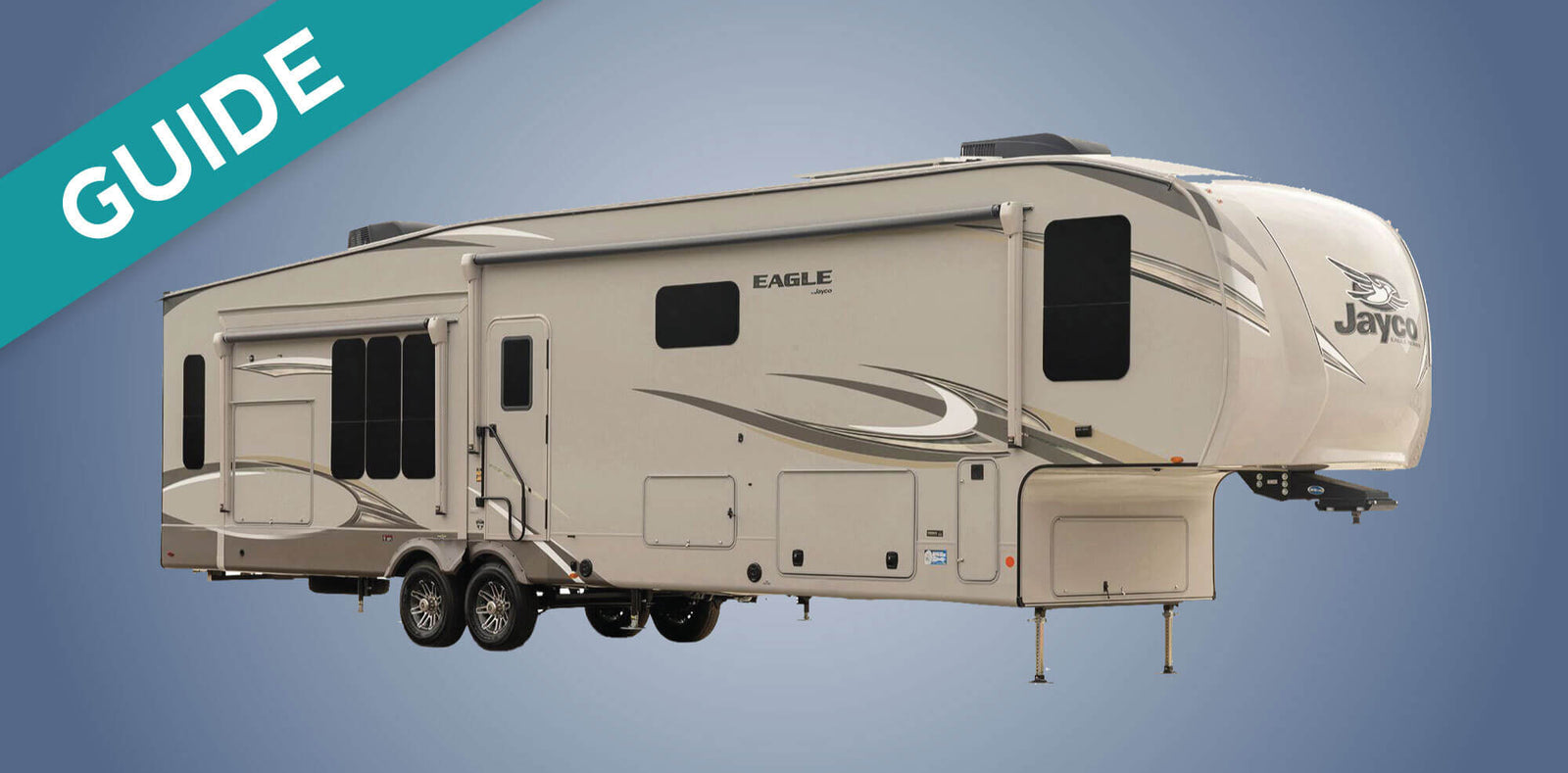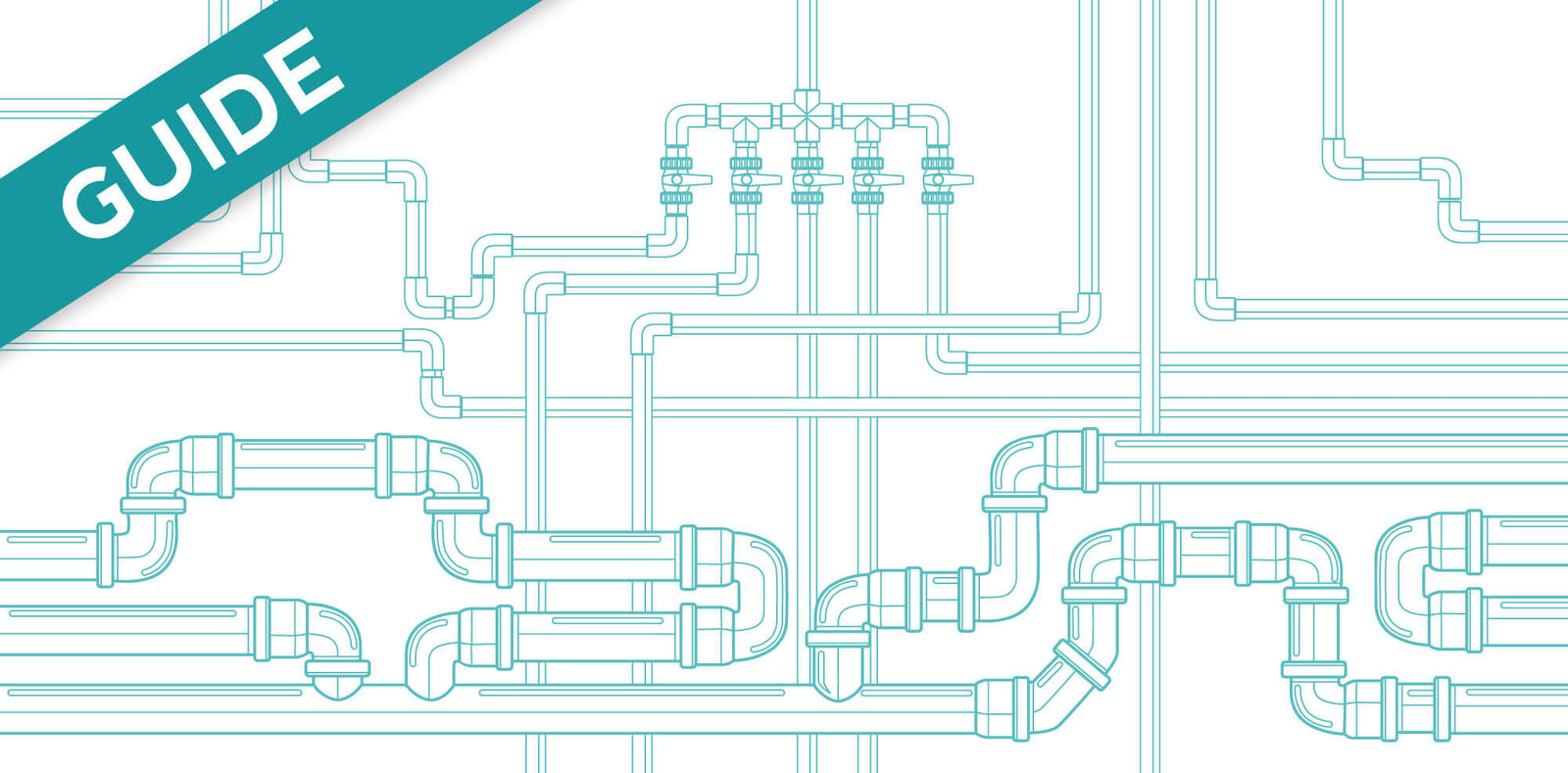
Key Points:
- A fifth-wheel is a specialized type of RV trailer that requires towing by a full-size or heavy-duty pickup truck. It gets its name from its hitch, which allows the trailer to pivot easily left and right.
- Fifth-wheels are known for being safe, sturdy, and easy to maneuver. They also tend to save on fuel costs, are ideal for large groups, and often offer more luxurious features compared to traditional tow-behind trailers.
- However, they do require a large truck for towing, and some may find their size intimidating, even though they’re often easier to manage than standard trailers.
The world of RVing has its own set of terms and lingo, which can be confusing for newcomers. In this guide, we’ll answer one of the most common questions: What exactly is a fifth-wheel?
What Is a Fifth-Wheel?
In simple terms, a fifth-wheel is a type of RV trailer that lacks an engine and needs to be towed. Despite this, it provides many of the same benefits as a motorhome. A fifth-wheel also uses a unique hitch, which is typically why it requires a large truck to tow it. To learn more about the various types of RVs, check out our introductory guide on RVing!
Why Is It Called a Fifth-Wheel?
At first glance, it might be confusing why a fifth wheel is called so, especially since it typically only has four wheels. The answer actually lies in the hitch itself, not the wheels. The term “fifth-wheel” refers to the hitch design. The 5th wheel hitch has a backward-facing U-shape, and its name is derived from its similarity to the original design used for horse-drawn carriages in the 19th century. In those days, the hitch was mounted on a horizontally pivoting wheel, allowing the carriage to turn smoothly left or right. Today’s fifth-wheel design works similarly. The trailer slides into the hitch and is locked in place by a “king pin,” allowing the trailer to move left or right as you turn.
Why Choose a Fifth-Wheel?
There are several reasons to consider a fifth-wheel over a traditional towed RV travel trailer:
- Safety and Stability: The design of a fifth-wheel disperses the weight more evenly, especially since part of the trailer is suspended over the bed of your truck. This results in a smoother ride and better stability on the road.
- Heavy and Large Loads: The fifth-wheel hitch design is similar to the one used by semi-trucks to attach trailers, making it capable of towing heavier loads than a typical ball-hitch trailer.
- Ease of Maneuverability: Thanks to its design, with part of the trailer above the truck’s bed, a fifth-wheel tends to be more compact and easier to maneuver than a traditional RV trailer.
- Fuel Efficiency: When compared to diesel-powered motorhomes, fifth-wheels can save you money on gas.
- More Space: Fifth-wheels are usually larger than traditional RV trailers, making them ideal for big groups or those who want more living space.
- Luxury Features: Fifth-wheel trailers are often equipped with upscale materials and amenities like real hardwood, full-sized appliances, and king-sized beds, making them an excellent choice for those seeking luxury on the road.
- Toy Haulers: Due to their larger size and the need for a powerful tow vehicle, many modern fifth-wheels include options for “toy storage,” such as space for bicycles, motorcycles, ATVs, UTVs, and more. If you have outdoor toys, a toy hauler fifth-wheel might be perfect for you!
How Much Does a Fifth-Wheel Cost?
Fifth-wheel prices can vary widely based on the model, size, and features. For a standard model, prices generally range from $20,000 for a used trailer to up to $400,000 for a top-of-the-line new fifth-wheel. The cost is largely dependent on the level of luxury and additional amenities you desire. Fortunately, with such a wide price range, you can find fifth-wheel trailers to suit nearly any budget.
Disadvantages of a Fifth-Wheel
Despite their many advantages, fifth-wheels come with some drawbacks:
- Size and Towing Requirements: Fifth wheels are large and heavy, so they require a full-size or heavy-duty truck for towing.
- Towing Challenges: While fifth wheels are generally easier to maneuver than standard trailers, some people may still feel uneasy towing a unit of this size. Fifth-wheels can easily be the largest towable rv.
- Backing Up: Backing up a fifth wheel can be tricky, especially for those new to towing. Though newer units with backup cameras are easier to manage, older models can still be challenging to maneuver into campsites or parking spaces.
However, if you have or plan to purchase a large truck and are comfortable with the size, a fifth wheel is an excellent option for your travels!
On the Road Again
We hope this guide has clarified what a fifth-wheel is and why it could be the ideal choice for your RV adventures. It's worth noting that there are other types of fifth-wheels, such as gooseneck trailers, which are similar but distinct.
Regardless of whether you choose a fifth-wheel or another type of RV, proper care is essential to ensure your trip goes smoothly. That’s why we’ve created The Unique Method, a comprehensive guide to RV care, to help you avoid issues like clogs and odors while camping! For more information, follow the link above.
If you have any further questions or need assistance, don’t hesitate to reach out. We’re always here to help!

Prevent Common Problems In Your Tanks!
From misreading sensors, preventing clogs, or eliminating odors, we've got you covered no matter how you camp! All our best holding tank tips and trick information plus more can be found conveniently in one place when you download our FREE Unique Method Field Guide PDF. Achieve holding tank bliss today!
Get The Free Download Get The Free Download



